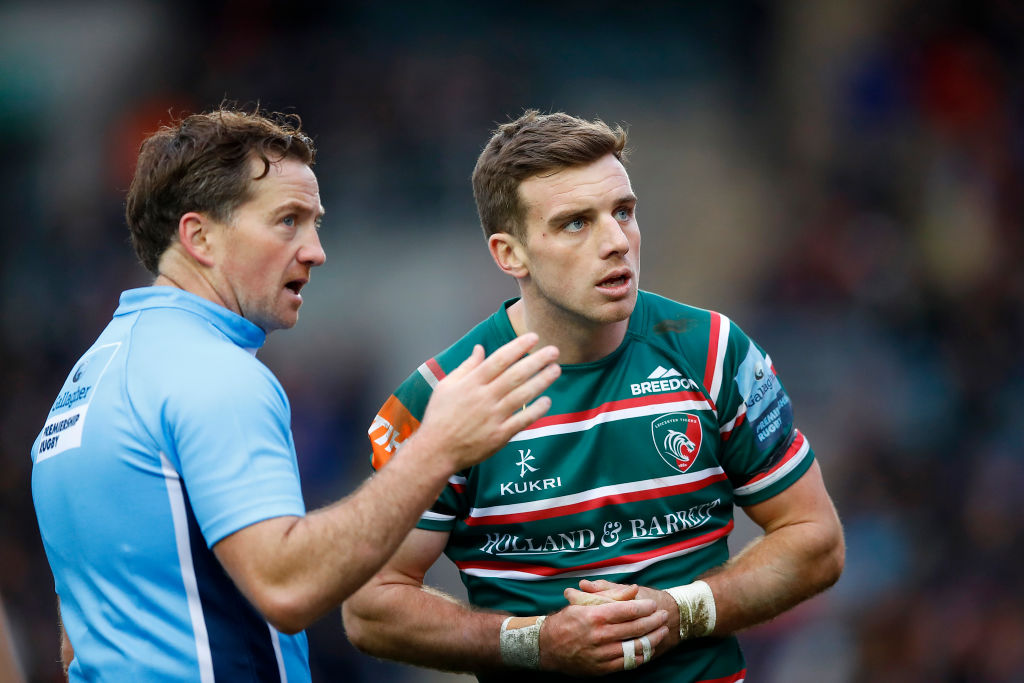
JP Doyle refereed at the 2015 World Cup but was made redundant by the RFU in August after 12 years in the Premiership. He talks to NEALE HARVEY about his officiating journey and the part he played in making rugby a safer, less thuggish sport.
How does it feel not to be refereeing after 12 years in the top-flight?
JPD: It hasn’t really sunk in yet. You see games on the telly but you don’t really associate with them anymore, which when you stop and think about it is very sad. You’d much prefer to be involved but you have to just crack on and get on with your life.
Why were you made redundant?
I don’t really know. I guess it comes down to cost-cutting but I didn’t get into that too much. They just told me after we went through the process that I was the one who had to go and I certainly wasn’t going to hang around and argue.
I just accepted their decision and there’s no story. I wish there was a story because it would explain things a lot easier to me, but on we go.
You’re officiating at the Bermuda World Tens later this month, but what comes next?
There are a few things we may look at in the New Year but it’s hard to plan anything for definite with Covid. I’m back to teaching PE at Claires Court School in Maidenhead so we’ll just have to see how things look.
I’m only 41 and still very fit, so I wouldn’t rule out refereeing in another country. But the pay in rugby is not huge and with a young family and a working wife, it would have to be the right offer and give us a degree of security.
What are you missing about reffing the most… and the least?
I’m not missing much at the moment because the Premiership games have been a bit low on intensity and interest with there being no crowds and relegation being sorted.
The top four situation has been a bit interesting and you do miss the interaction and events, but nothing to get emotional about.
You’d think the things I’d miss the least would be moaning coaches or going through clips and reviews, but they were all part of the long process and when you’ve been doing it for 12 years, there’s always a game to review, analyse and the critiques of what you did from coaches and colleagues. You’re completely used to being scrutinised and being held accountable.
How did you tend to react to criticism?
Criticism that was right always stung because you’re disappointed you made those mistakes. I remember a Bath v Leicester game one New Year’s Day where error kept compounding upon error in the first half and I just wasn’t very good.
Afterwards, you can kind of accept that and move on because you know you were bad. Conversely, when you’re criticised in public for something you’ve got right but have no right of reply, that can be frustrating. That happens quite a few times when teams have lost!
Are referees still able to interact with fans?
I’ve always done sessions with fans of various clubs and they can be really enlightening because you can give them information they never thought about.
They support their teams through thick and thin and you’re often responsible for the thin and face the music, but we’re lucky in our sport to still be able to go into a fans’ forum, have a few beers, tell a few jokes and share a few insights about how their team might have won or lost.
Everybody’s usually pretty happy with that and regardless of whether they think you’re a good ref or a rubbish ref, they can still see you’re a decent person.
Can those referee/fan relationships survive in the modern, social media-driven era?
Yes, 100 per cent. There’s absolutely no reason why referees can’t be involved and let people know why they’re making decisions.
Rugby’s so complicated and there are so many grey areas that sport actually needs that interaction and there should be more of it. You could show a breakdown clip to six international rugby referees and two will say that’s a not rolling away penalty, two will say it’s a holding on penalty and the other two will say they’d have played on, but all of them might end up being relatively correct. This greyer stuff is where the difficulties lie.
How did you end up reffing?
I played No.9 for St Mary’s University in London but had a couple of surgeries on my back which made playing pretty tough, so I took up the whistle.
I knew I could earn £20 or £30 in beer money on Saturdays and for a student that was fantastic. Then it got a bit more serious and while I might have been a poxy ref, I was an even poxier player so it was the lesser of two evils.
I was 24 or 25 when I got onto the national panel, which in those days was quite young but these days you’d expect to be pushing into the Premiership and international scene by that age.
I was quite pleased with my progress after turning full-time in 2009, but I should probably have got there a couple of years quicker because I didn’t take it as seriously as I should have early on.
Was it your maverick tendencies that held you back?
Yes, but I also think that was my strength because my whole raison d’etre about refereeing was to treat the players as good as possible.
I’d have fallouts with other referees who said players don’t care about you and they’ll just pull the wool over your eyes etc. I’m a primary school teacher by trade and children every day try to pull the wool over your eyes, but you still welcome them back into class the following day and the slate is clean.
Like players, it’s not my job for them to like me, but you can appreciate them and let their talents show. That was what I took into my refereeing and even if I was sending a player off, I’d still treat them well because whatever the offence was, he didn’t do it to me and he was the person who’d have to deal with the consequences.
What’s the most difficult decision you’ve ever made?
The last gasp penalty against Nathan Hughes which sent the 2017 Premiership final between Wasps and Exeter into extra-time, because I could see it happening before it happened and knew the enormity of it.
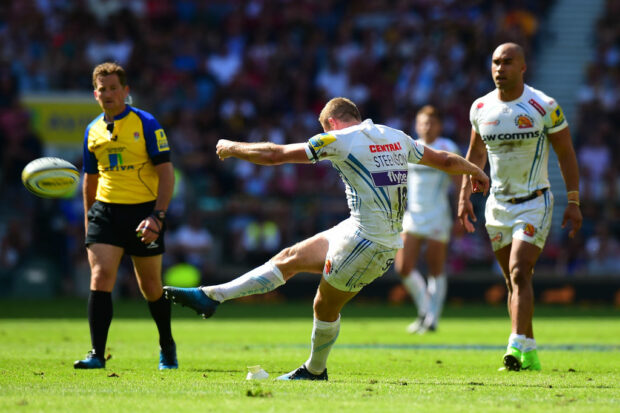
I knew it was a three-point game and there was a ruck which Nathan went into to make a turnover, but he was beaten by the ruck and we’d been really consistent on that decision all year. I tried to shout out before he did it, but I had to blow and I found that heart-breaking. Gareth Steenson kicked the goal, of course, and Exeter went on to win.
‘Coaching’ by referees is one of the game’s irritants, why do you do it?
I get that, but whether it’s coaching or giving information is a thin line. If a player is unaware of something – like if he’s seen a ball and there’s nobody on their feet and he feels he can go for it, but has missed a bit of information around when a ruck was formed – you have to give him the information to allow him to make the right decision, it isn’t me making the decision for them.
It’s a symbiotic relationship and the referee will do this to help the game, but of course you can go too far with it and telling people to leave balls alone that they’re perfectly entitled to attack, which you see an awful lot of in refereeing, or you don’t say enough and then give ‘gotcha’ penalties, that’s where the problems arise.
As ever in rugby, there’s a balance to be struck and if you over-coach, that’s a problem.
Is there too much coaching at the moment, though?
The senior refs will influence the most how things are being refereed. Wayne Barnes, Nigel Owens and Jaco Peyper are quite verbose at the moment and doing a lot of talking to help people understand TMO calls and what’s happening around the breakdown, where they’re talking to the players quite a lot. Over time it changes and it will come back round to saying less again.
Talking of the breakdown, after an earlier crackdown to facilitate quick ball things seem to have reverted to type, why is that?
There’s always a cyclical scenario around law change. When it comes in, you’ll get referees keen to emphasise those bits and they’ll go hard for a time, but then what happens is you’ll get an action change by the players and the penalty count comes down.
But then slowly, slowly, like the tide coming back in, the players will start reverting to what they did previously and the referees probably don’t react quickly enough to stop it again. You think to yourself, ‘Hadn’t we stopped that six weeks ago?’ but it’s one of those unintentional outcomes and things tend to change naturally.
What can we do about scrums and those infernal, endless resets?
One of the biggest problems we have is the time it takes to set the scrum, but what’s probably not put out there enough from the refereeing side is that we could get on with things really quickly but we have to get the bind and set right from a safety point of view.
If a referee starts rushing a guy and he’s saying, ‘I don’t feel safe’, then the referee’s going to put himself in a very difficult position.
The No.1 thing about scrums is safety so if you hurry things up and it collapses and causes an injury, even if it’s not a large injury it could have serious consequences.
For starters, a player has to go off and he could then say, ‘you’ve rushed me into that and it’s cost me five to ten weeks out’. As referees we want to speed things up but you don’t want to put yourself in harm’s way either in terms of potential repercussions.
How about stopping the clock on scrums so fans aren’t short-changed?
You can do that, and I have done it from time to time if I think teams are mucking around, but the more you do that you’re just creating longer breaks in an already long game.
Instead of lasting 120 minutes, as they do now, overall game time will just go up and up. Collisions will just get bigger, with more of them, and you’re just elongating the game. I can tell you there are less resets now than there were three years ago and far fewer scrums.
We’re down to about 12 a game now, whereas at the 2003 World Cup it was 20, so we’re spending less time on scrums.
We’re seeing quite a few marginal red cards when a yellow might have sufficed, what’s your take on that?
You’re talking about Elia Elia’s tip tackle on Dan Robson the other week, right? From a ref’s perspective, what’s really important is whether the player chose to commit an offence. In Elia’s case, he lifted Robson into a position where he had to break his fall with his forearm and the referee, quite rightly, saw it as a red.
It’s not an unlucky red card, nor would a yellow have been seen as totally wrong, but World Rugby have said that in certain areas such as tip tackles, tackles in the air and shots to the head, if you have the option to be tougher or more lenient, they would prefer you to take the tougher option.
Which players have challenged you most as a referee?
The difficult people were big characters. Brad Barritt is a brilliant guy but he was steadfastly on his team’s side in any refereeing matter, which is totally to be expected.
Jono Ross is another great guy who is always at you and Greig Laidlaw was exactly the same. They’d give you a tough time but I had huge respect for them.
Which other players do you respect the most?
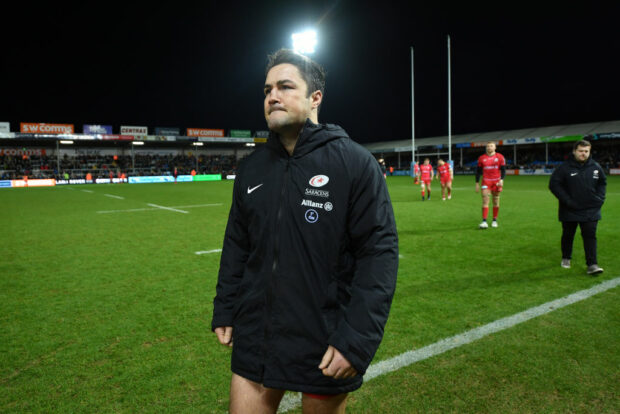
Barritt and Mike Brown are right up there, and there are other guys who turned up each week and put in massive shifts but never got the credit they deserved, like Jonathan Mills, Hugh Vyvyan and Mark Lambert, who every week gave it everything and woe betide anyone who got in their way.
Biggest bust up with a coach?
I’ve had a fair few with fellow Irishman Conor O’Shea. He knew how he wanted his team to play and be reffed and he would put pressure on you and challenge your decisions.
The funniest incident I had was Gloucester v Worcester in 2013 when the giant inflatable ball they rolled across the pitch knocked off the crossbar and caused the game to be delayed.
I had Dean Ryan and Nigel Davies growling at me, asking what I was going to do about it, so I told them to decide what they were going to do about it and left them to it. I wish I’d had a camera in that dressing room!
How do you rate the new breed of Premiership refs like Christophe Ridley and Karl Dickson?
I think the fact no one’s saying much about them shows how good they are. That’s always a good barometer. As a Premiership refereeing panel, it’s probably the strongest in the world and I expect us to be well represented at the 2023 World Cup. Karl Dickson’s doing France v Wales in November, so what a wonderful opportunity for him.
Wayne Barnes has done nine out of the last 11 Premiership finals, should we not be rotating the strike more often?
I like the fact you have to earn it and it should be the best guy for the job. Wayne’s still setting the benchmark worldwide and I like that meritocracy. That’s not to say other guys aren’t stepping up and when I got the finals in 2014 and 2017, I like to think I got them fair and square. It’s up to other guys to earn it, you don’t want to give those opportunities away.
Discipline-wise, how does the Premiership compare now to when you started?
You look at the lack of violence, thuggery and nasty actions now and the disciplinary system seems to be working. Go back ten or 12 years to when I started in the top-flight, we must have done something right because you just don’t get the gouging, stamping or deliberate high shots there used to be. I like to think I played my part in bringing those acts of violence down.


British and Irish Lions
Charlie Elliott: The 17 backs I would select for the British and Irish Lions

British and Irish Lions
Charlie Elliott: The 21 forwards I would select for the British and Irish Lions squad

















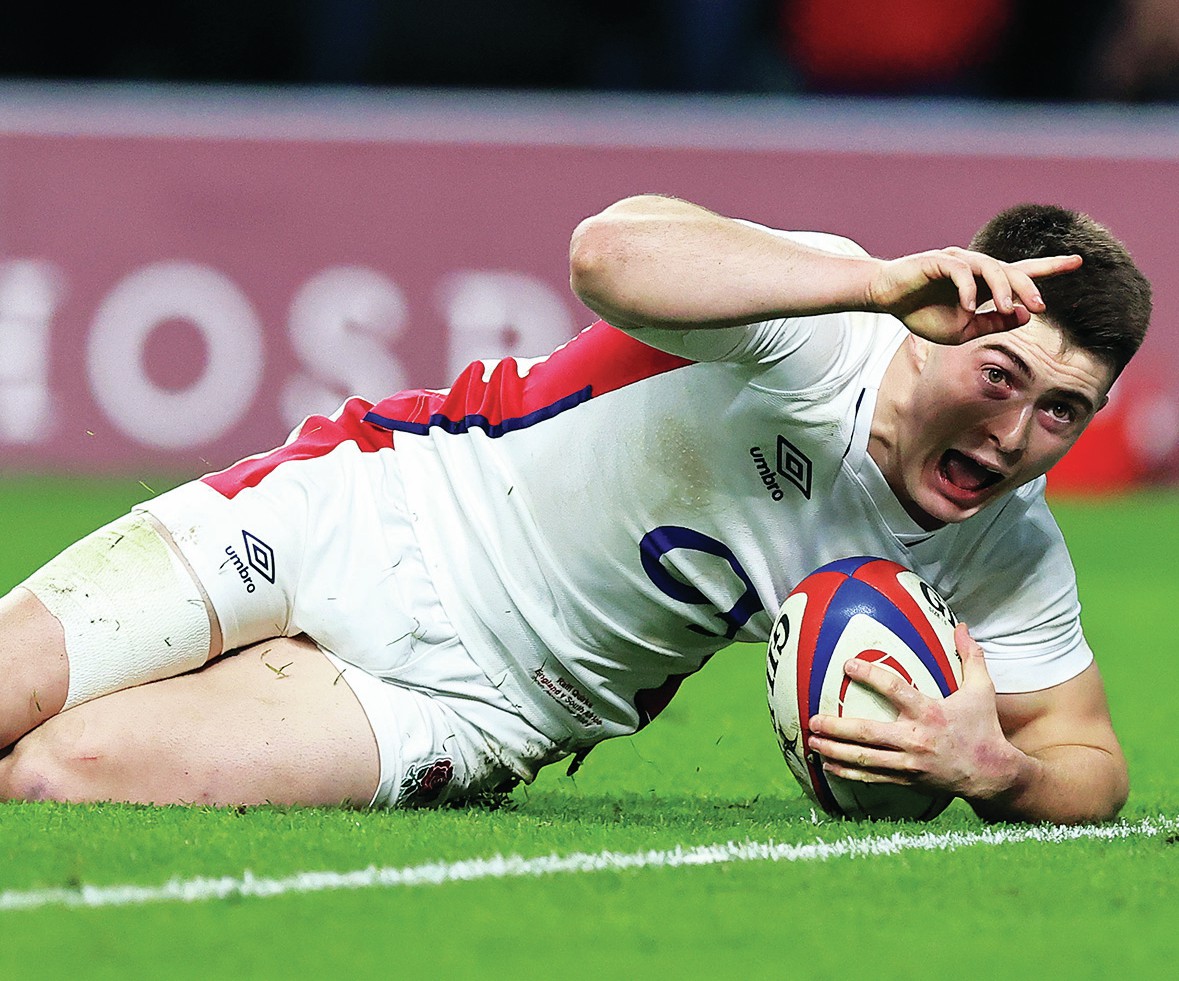
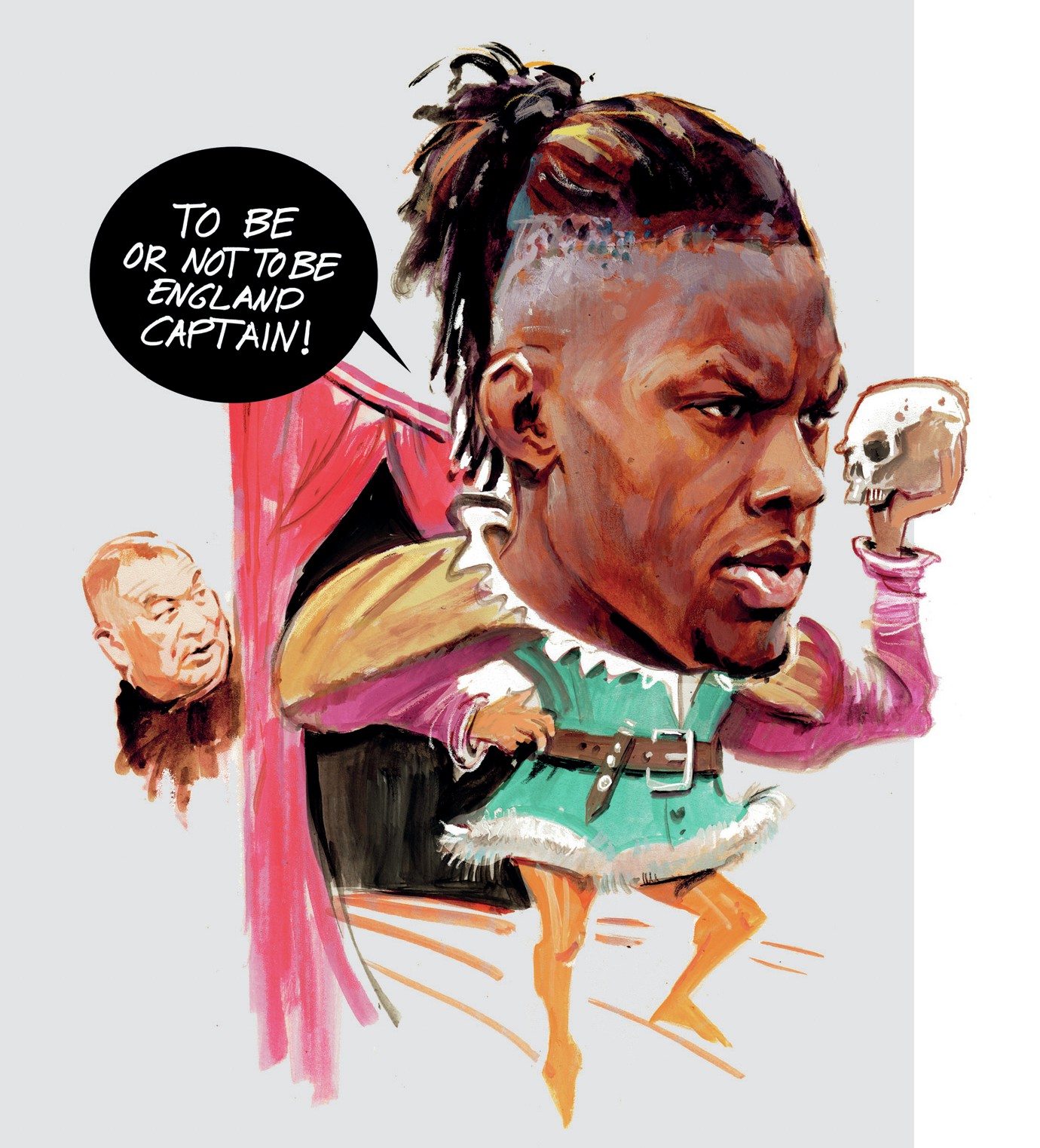

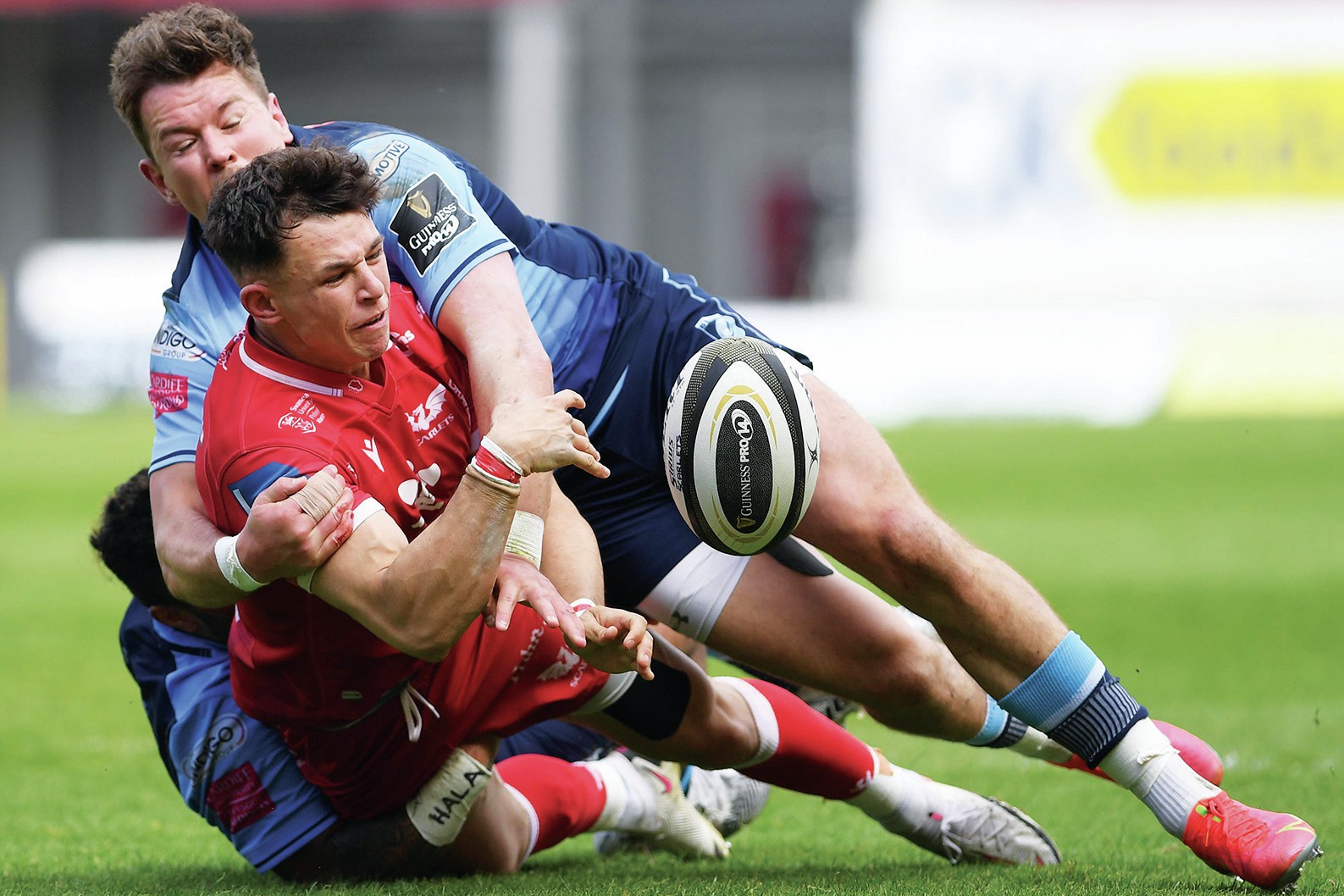
You must be logged in to post a comment Login